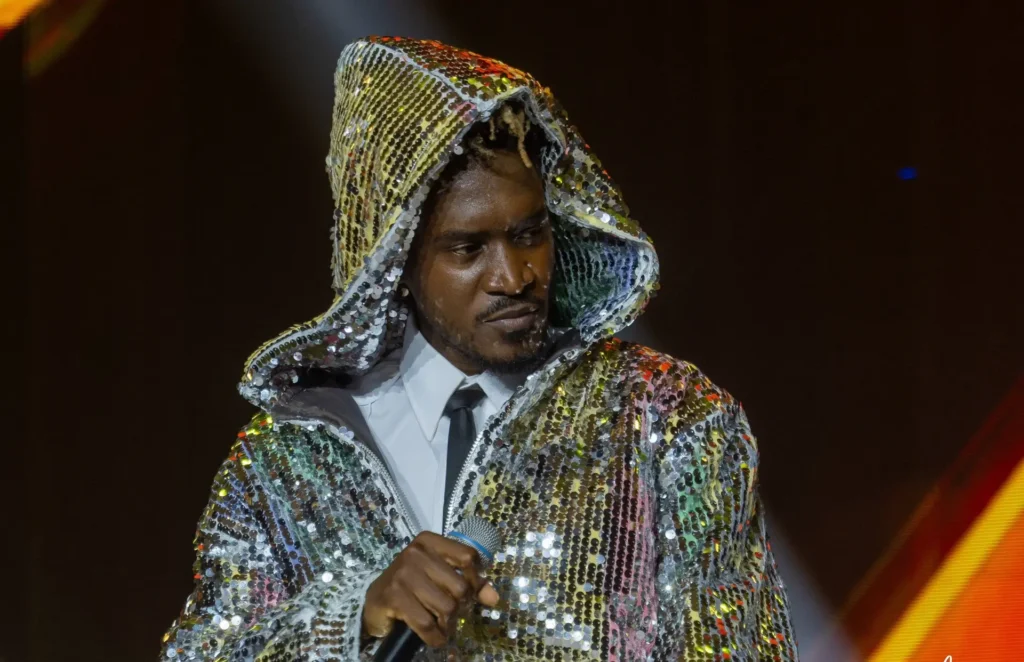A growing number of Ugandan musicians are taking a firm stance against fans who illegally record and upload concert performances online. This move has ignited a heated debate between artists, showrunners, and content creators over the ownership and quality control of concert footage.
A Pass Takes a Stand Against YouTube Uploads
At the forefront of this campaign is singer A Pass Bagonza, who, following his widely praised concert at the Kampala Serena Hotel, cautioned fans against uploading lengthy recordings of his performance on YouTube.
“People can post what they want on Facebook, Instagram, and X but not YouTube. Do not dare, because that is a different story,” A Pass warned.
The “Wuuyo” singer emphasized that his team invests heavily in professional cameras, drones, and editing, ensuring that high-quality content is produced. He believes amateur recordings, captured using poor-quality devices, undermine these efforts and distort the experience of his carefully curated performances.
“You cannot take your poor-quality phones to my show, upload chunks of it on your channel when we invested money in good cameras and drones. Right now, we are busy editing, while your poorly recorded content is out there making my sound seem bad.”
A Pass also issued a stern warning to YouTubers, stating that anyone uploading more than three minutes of his concert footage risked having their channels shut down.
Ragga Dee Joins the Crackdown
Veteran artist Ragga Dee is also taking a stand against unauthorized concert recordings. Ahead of his January 25th concert at Serena, he banned live streaming and unauthorized footage, ensuring that only an official media partner could broadcast the show.
“At the show, we have partnered with an entire television company to stream the concert. In doing so, we make sure the sound they use is coming from our mixers and not picked directly from the speakers like you are doing with your phones.”
Ragga Dee stressed that he does not want to hinder content creators, but he prioritizes his brand and professional image over unregulated footage circulating online.
“I am not trying to stop you from making content, but I care more about my image, which you might be tarnishing out there.”
Fan Backlash and the Debate on Content Sharing
The artists’ stance has sparked mixed reactions, with some fans and content creators viewing it as an attack on fan engagement. Some argue that concert attendees who pay for tickets should have the right to record and share their experiences.
Critics have also pointed out that international artists often have their concerts shared online without issue, citing examples like Chris Brown in South Africa and Kendrick Lamar’s global tours.
One social media user took a jab at A Pass for restricting his music on TikTok, suggesting that he was being overly controlling.
“A Pass has been an upcoming artist for his entire music career. Just this one concert and now his wings have germinated,” wrote Qwenxo Owe Mogolo.
Another user suggested that the only way to completely stop recordings is to ban phones from concerts, similar to how some comedians do.
Support for Artists’ Copyright Protection
On the other hand, many support the musicians’ right to control their content. They argue that artists should regulate how their performances are shared to maintain quality standards and protect their intellectual property.
“I am with A Pass on this through and through. Your world must be protected at all costs,” stated Emmanuel Mwaka.
International Perspectives on Concert Recordings
The issue of fans recording concerts is a global debate. While some artists welcome fan recordings, others strictly prohibit them to maintain quality control and revenue streams.
Unauthorized recordings can infringe on copyrights, leading to legal action. Many major artists and venues explicitly prohibit filming during performances, requiring attendees to obtain licenses to share concert content.
However, some bands, such as The Grateful Dead, encouraged fans to record their performances and even provided designated areas for tapers. This approach fostered a dedicated fan community and led to an archive of live music recordings.
With smartphones making it easier than ever to record and share content, the debate over concert recordings and their impact on live performances is likely to continue.
Final Thoughts
The actions of A Pass, Ragga Dee, and other Ugandan musicians highlight the growing concern over content ownership in the digital age. While artists strive to protect their brand and revenue, fans and content creators argue that restricting recordings limits fan engagement.
The question remains: Should artists have full control over concert footage, or should fans be free to share their experiences? The debate is far from over.
Stay tuned for more updates on this evolving story in Uganda’s music industry












